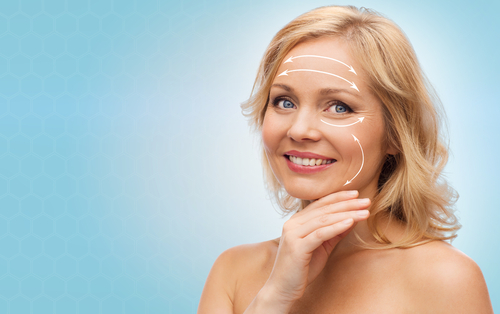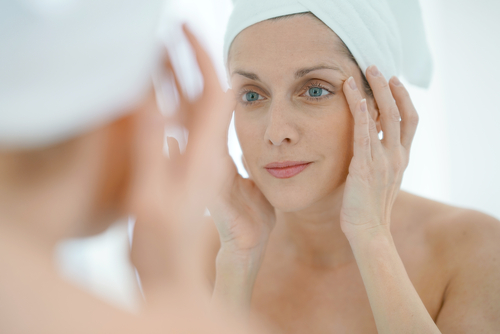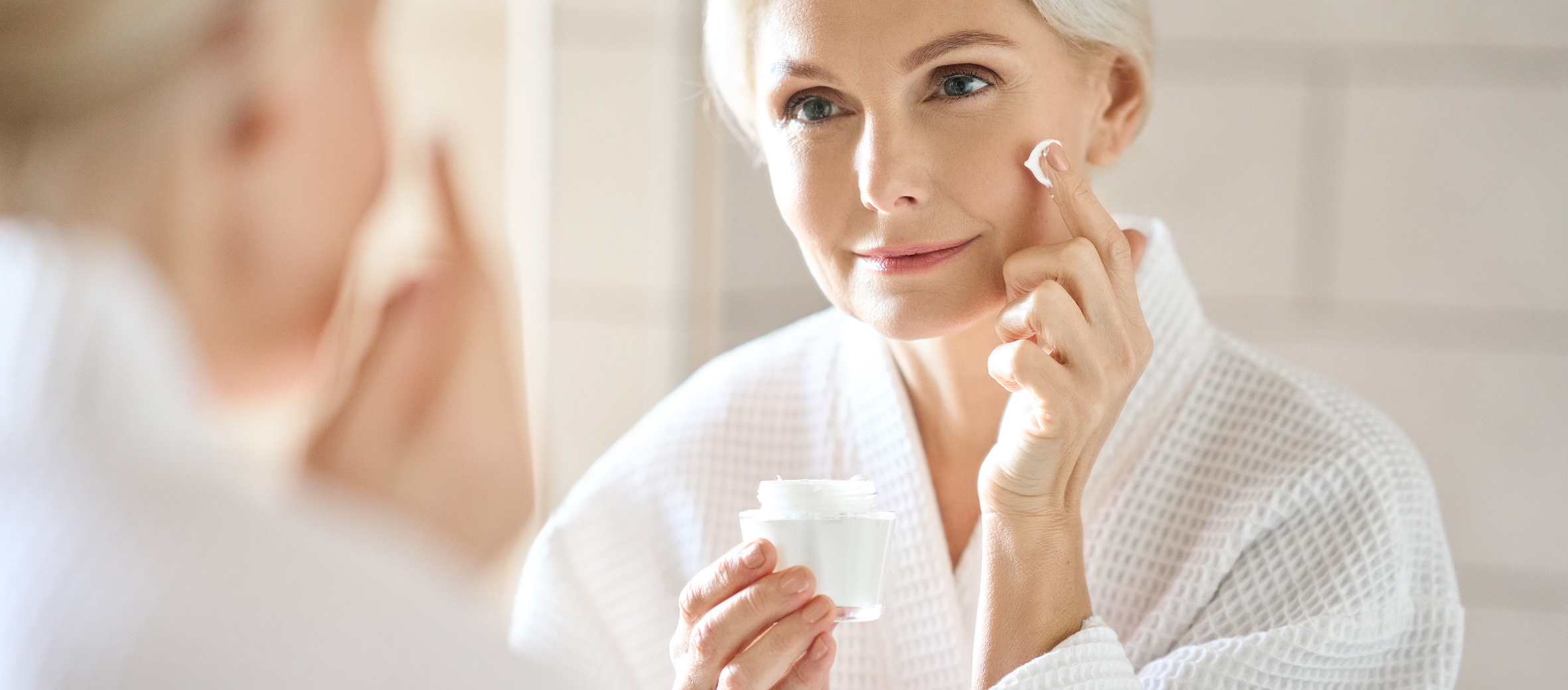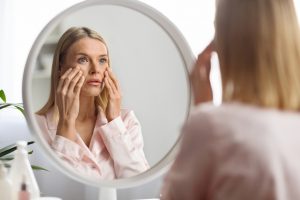Everyone reaches an age where our skin starts to gradually exhibit the subtle effects of ageing as the years pass.
More than merely accepting the inevitable changes, graceful ageing entails nourishing and caring for our skin with efficient anti-ageing skincare regimens.
In this post, we’ll look at tried-and-true skincare techniques and practical advice to age gracefully.
Understanding the Ageing Process

All living things, including people, experience the natural and unavoidable ageing process. Both at the cellular and tissue levels, it is a complex and progressive biological process. In order to create practical measures to maintain general health and well-being as we age, it is crucial to understand the ageing process.
- Cellular Aging
With each cell division, telomeres, the protective caps at the ends of chromosomes, become shorter. Cells may stop dividing or enter a state of senescence as they are critically short, which causes tissue malfunction and ageing. Cellular malfunction and impairment can occur as a result of accumulating DNA damage over time.
- Collagen and Elastin Degradation
With time, the proteins collagen and elastin, which keep skin elastic and tight, begin to degrade, causing wrinkles, sagging skin, and volume loss.
- Decline in Hormone Levels
Age-related reductions in the synthesis of vital hormones like growth hormone, estrogen, and testosterone have an impact on many body processes, including skin health.
- Reduced Hyaluronic Acid
With ageing, hyaluronic acid levels decline, which contributes to dryness and the visibility of fine wrinkles. Hyaluronic acid helps the skin retain moisture and plumpness.
- Oxidative Stress
Increased generation of free radicals combined with weaker antioxidant defences can result in oxidative stress, which damages cells and hastens ageing.
- Glycation
Glycation, a process where sugar molecules bond to proteins and make them stiff and less functional, might result from excessive sugar intake. Premature aging may result from this and damage the suppleness of the skin.
- Lifestyle and Environmental Factors
The aging process can be accelerated by unhealthy lifestyle choices, including smoking, eating poorly, and not exercising, as well as by exposure to UV radiation and environmental toxins.
Effective Anti-Aging Skincare Routines and Tips

Our skin changes as we age, including a reduction in collagen formation, elasticity loss, and an increase in sensitivity to environmental variables.
But with the appropriate skincare regimen and lifestyle choices, we can successfully delay the ageing process and preserve a young appearance. Here are the ten crucial components of an anti-ageing skincare regimen:
- Daily Cleansing
Any skincare regimen must start with cleansing, which is particularly important as we get older. A mild cleanser that eliminates pollutants without removing the skin’s natural oils is what you should pick. To ensure the complete removal of makeup, debris, and pollutants gathered throughout the day, think about double cleansing.
- Exfoliation
Exfoliation is essential for eliminating cellular debris and accelerating cell renewal on a regular basis. Avoid over-exfoliating, though, as older skin is more sensitive. To reveal younger-looking, smoother skin without causing irritation, choose gentle exfoliants with alpha hydroxy acids or beta hydroxy acids.
- Hydration is Key
Maintaining skin elasticity and suppleness requires adequate hydration. Choose moisturizers with a high concentration of hyaluronic acid, a humectant that draws and holds moisture to the skin. Consider applying face oils as well to seal in moisture and strengthen the skin’s barrier.
- Sun Protection
One of the main factors contributing to early aging is exposure to the sun’s UV radiation. Put on a broad-spectrum sunscreen with an SPF of at least 30 to protect your skin. Apply again at regular intervals, especially if you’re going outside.
- Targeted Treatments
Include targeted therapies in your regimen to take care of particular aging issues. Vitamin C serums that are antioxidant-rich can lighten skin and combat free radicals. A powerful substance for increasing collagen formation and minimizing the development of wrinkles is retinol, a vitamin A derivative.
- Nourishing Ingredients
Search for skincare products with nourishing components, including growth factors, peptides, and ceramides. These ingredients maintain the structure of the skin, increase suppleness, and lessen the visibility of fine wrinkles.
- Eye Care

The delicate skin near the eyes is prone to wrinkling and puffiness. To counteract these ageing symptoms and regain a more youthful appearance, use an eye treatment containing moisturizing components like hyaluronic acid and peptides.
- Neck and Décolletage Care
In order to keep a continuous youthful appearance, the neck and décolletage also need care. Apply sunscreen, serums, and moisturizer to these areas as part of your daily skincare regimen.
- Healthy Lifestyle
The fight against ageing depends heavily on living a healthy lifestyle. Drink enough water to stay hydrated, eat a balanced diet high in antioxidants, vitamins, and minerals, and exercise frequently to boost circulation and skin health. Additionally, using apps like MyFitnessPal and Lose It! can help you track your nutrition and fitness goals, making it easier to stay on track with your healthy lifestyle choices.
- Get Enough Sleep
For cellular renewal and general health, quality sleep is crucial. To help your body heal and regenerate, aim for 7-9 hours of sleep each night.
Conclusion
An efficient anti-ageing skincare regimen is essential in the search for graceful ageing. We can promote the health of our skin by embracing daily washing, mild exfoliation, appropriate hydration, and sun protection, along with focused treatments and eye care. Our ability to age gracefully, confidently, and with a beautiful glow increases when we combine this with a healthy lifestyle that includes nutrition, exercise, and sufficient sleep.





